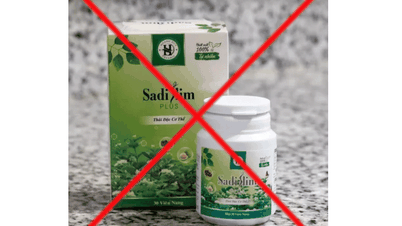Researchers at the University of Mississippi (USA) have discovered and published a new study showing that the main compound in the familiar spice cinnamon called cinnamaldehyde can activate receptors in the body that help break down some drugs, potentially reducing the effectiveness of some prescription drugs, according to The Independent newspaper.
Even people who add a little cinnamon to sugar or hot drinks as they like may not have any problems but consuming this spice in high doses can cause complications.
A familiar spice - cinnamon - can reduce the effects of drugs.

Cinnamon is a spice that can reduce the effects of drugs.
Photo: AI
People with chronic diseases such as hypertension, diabetes, cancer, arthritis, asthma, obesity, HIV, AIDS or depression should be cautious when using cinnamon or any other supplements, added Shabana Khan, a scientist involved in the study.
Scientists also note that cinnamon essential oil — commonly used in cooking and toiletries — poses no risks. However, that's not the case with cinnamon bark.
Cinnamon bark, especially Cassia cinnamon—a cheaper version of the spice—has the potential to cause drug-related problems. The cinnamon commonly sold in grocery stores is often made from Cassia cinnamon bark, according to the New York Post .
The coumarin content in these cinnamons is inherently higher than that of cinnamon from Sri Lanka, which has been warned to be dangerous for people taking blood thinners, due to the anticoagulant properties of coumarin.
In general, scientists recommend that if someone regularly consumes large amounts of cinnamon or has concerns about their cinnamon intake, they should talk to their doctor. Anyone who relies on medication to maintain their health should consult their doctor before consuming foods that may interact negatively with their treatment.
Source: https://thanhnien.vn/canh-bao-loai-gia-vi-quen-thuoc-lam-giam-tac-dung-cua-thuoc-khi-dung-chung-18525050618263035.htm


![[Photo] Coming to Son La, let's "show off" with the Wallflowers](https://vphoto.vietnam.vn/thumb/1200x675/vietnam/resource/IMAGE/2025/5/21/627a654c41fc4e1a95f3e1c353d0426d)
![[Photo] Scientific workshop "Building a socialist model associated with socialist people in Hai Phong city in the period of 2025-2030 and the following years"](https://vphoto.vietnam.vn/thumb/1200x675/vietnam/resource/IMAGE/2025/5/21/5098e06c813243b1bf5670f9dc20ad0a)

![[Photo] Prime Minister Pham Minh Chinh receives the President of Asia-Pacific region of PowerChina Group](https://vphoto.vietnam.vn/thumb/1200x675/vietnam/resource/IMAGE/2025/5/21/0f4f3c2f997b4fdaa44b60aaac103d91)




















































































Comment (0)